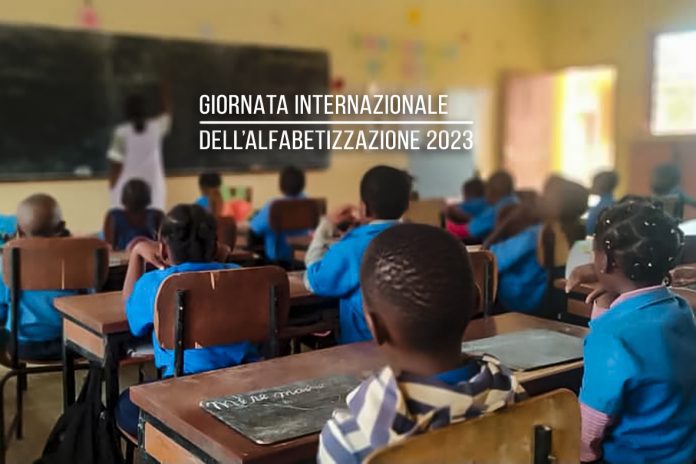Rome (Italy). International Literacy Day (ILD) is celebrated on 8 September 2023, established in 1966 by the United Nations Educational, Scientific, and Cultural Organization (UNESCO) with the aim of reminding the international community of the importance of literacy in relation to the dignity and human rights of individuals and the need to invest in education to advance the literacy agenda towards a more educated and sustainable society.
In fact, literacy is one of the objectives of the 2030 Agenda on sustainable development: Goal 4 – Provide quality, equitable, and inclusive education and learning opportunities for all.
Each year a specific theme is chosen to focus the event on an issue of international importance. For 2023, it is: “Promoting Literacy for a World in Transition: Building Foundations for Sustainable and Peaceful Societies.”
With this theme, the aim is to highlight the extreme importance of literacy in a constantly evolving world, which makes it necessary to adapt the means of promotion. Literacy is essential for the active participation of individuals in democratic and political life, and instills a sense of responsibility to actively contribute to the construction of society. By improving their knowledge and skills, citizens will better understand their rights and will be better equipped to then be able to fully engage in society.
It is also a great resource for the creation of sustainable and peaceful societies. Access to information in fact increases public awareness of ecological problems and the extreme need to cooperate in favor of peace in the world.
Despite continued progress, there are still an estimated 758 million adults in the world who cannot read or write, two-thirds of whom are women. The COVID-19 pandemic and other crises like climate change and conflicts, have intensified challenges, such as the widening digital divide between different sections of the population due to accelerating technological advances. Because of the relevance of these data, UNESCO undertook to organize this day, valuing the best initiatives aimed at promoting literacy through various vari awards. In addition, projects and activities are organized around the world to raise awareness of the importance of literacy.
The Human Rights Office of the International Institute Mary Help of Christians (IIMA) in Geneva, Switzerland, committed to the protection of human rights including literacy, at the 52nd session of the United Nations Council on Human Rights (27 February – April 4), made recommendations to some countries: to India to effectively implement its law on free and compulsory schooling for children, equal access and quality of education; the Philippines to increase its education budget to raise salaries, buy materials, and provide better education for children; Argentina to increase the quality of educational tools, such as technological means for each school. Additionally, Benin was recommended to give more funding to private schools to increase free education and to implement measures to keep children in school.
In recent years, many countries have taken measures to promote literacy. For example, Argentina is working to reduce the technology gap in schools and Zambia has added human rights and gender equality education and formation programs to the curriculum.
The Institute of the Daughters of Mary Help of Christians in the 97 countries where it is present, undertakes to take care of and accompany the new generations so that they may be builders of just, humane, sustainable, and peaceful societies, renewing “the passion for a more open and inclusive education to form people capable of overcoming fragmentation and contradictions” (Acts GC XXIV, n. 33).




















